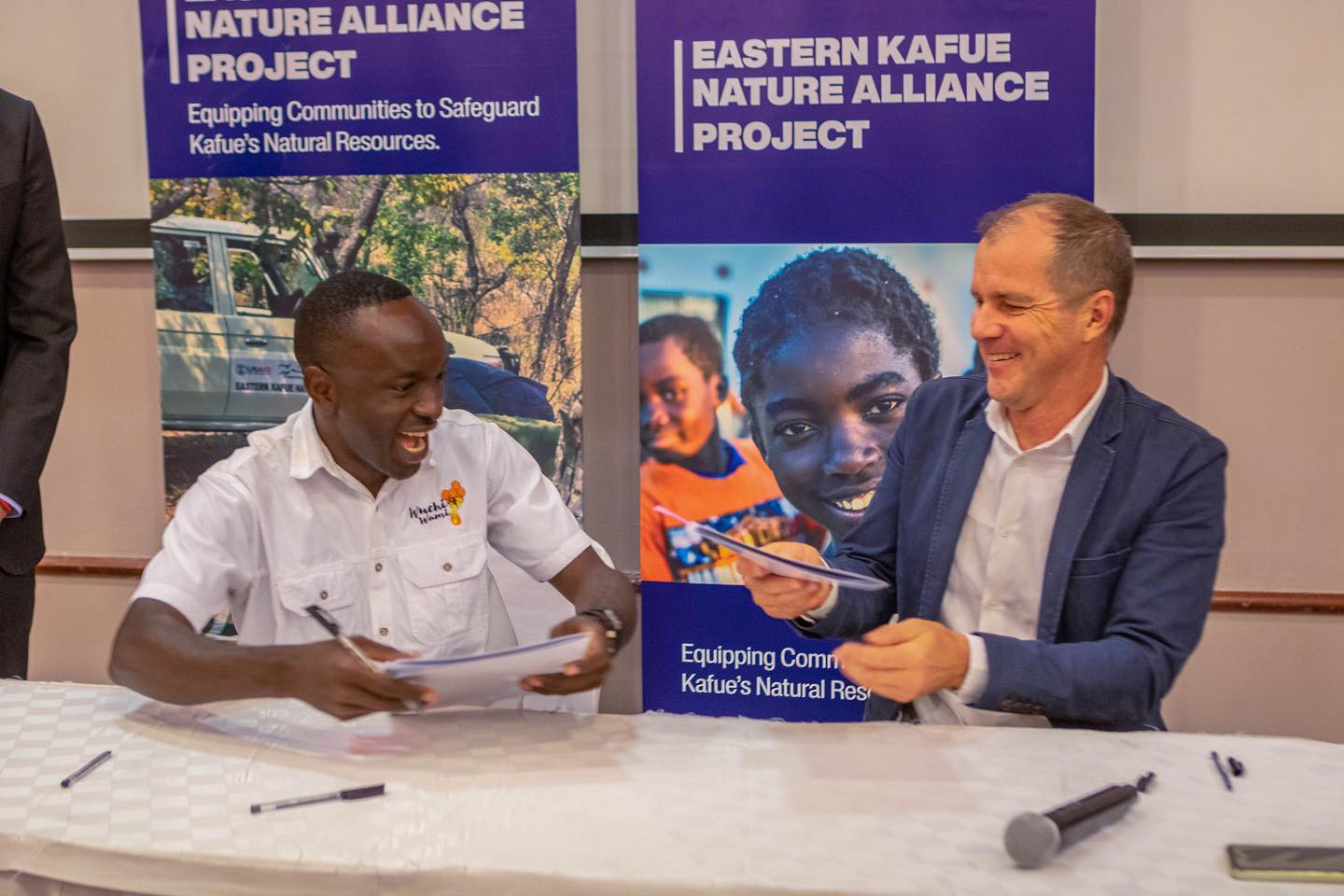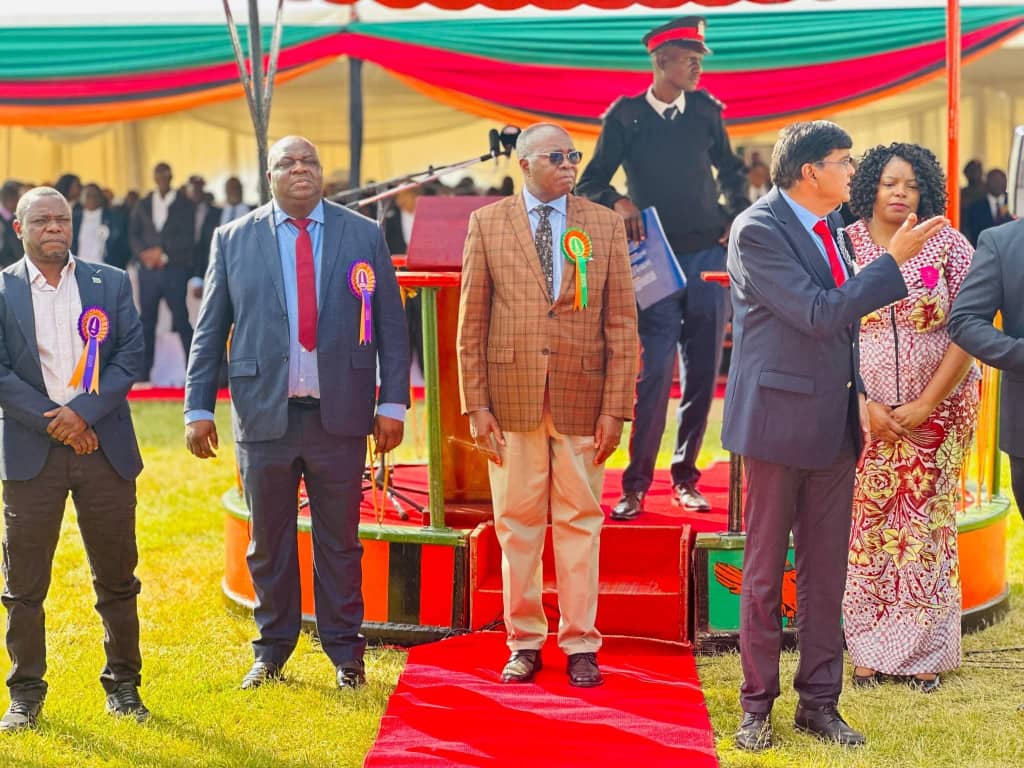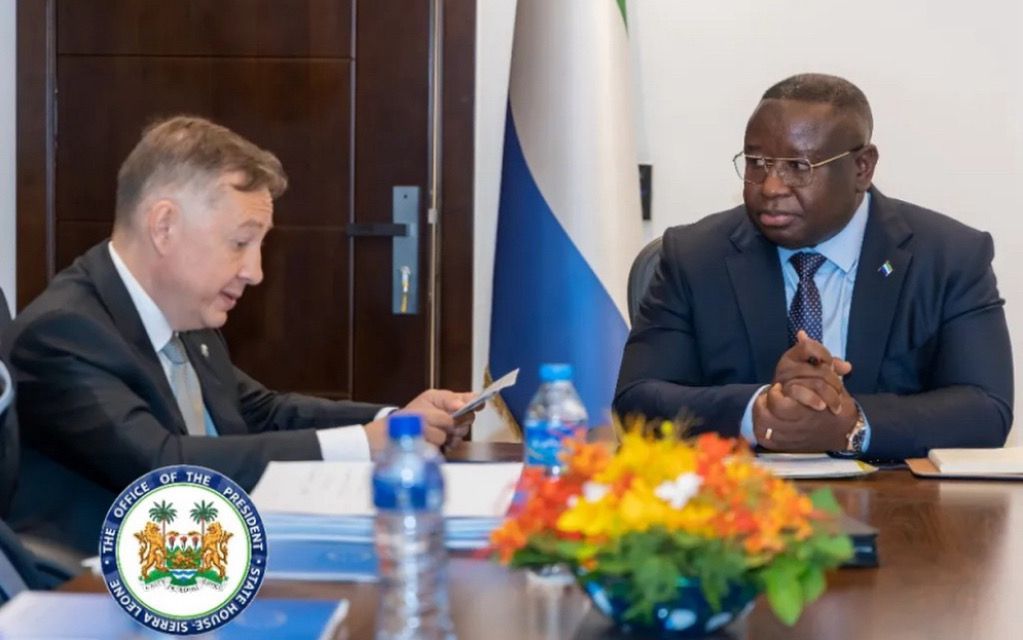The Nature Conservancy (TNC) has signed Memorandum of Understanding (MoU) with four Zambian Agribusiness private sector partners on enhancing access to market.
United States Agency for International Development (USAID) Mission Director, Peter Wiebler, says the agreement will increase the income and resilience of 6,900 families living around Kafue National Park who rely on farming and beekeeping for their livelihoods.
Speaking during the Eastern Kafue Nature Alliance (EKNA) MoU signing with four Zambian companies in Lusaka, Mr Weibler said the EKNA will provide training in organic and conservation farming practices and high-quality seeds for legume crops.
Mr Weibler stated that the training is necessary for the private sector as they need it to make competitive consumer food products.
“260 Brands, COMACO, Good Nature Agro and Wuchi Wami will guarantee to purchase the legumes and the honey to use in producing healthy, organic, environmentally friendly products for Zambian consumers, “he said.
He explained that the promotion of organic and conservation farming practices minimizes the use of non–renewable resources.
He further noted that conservative farming practices will contribute to making agriculture systems more resilient to climate change by reducing greenhouse gas emissions.
He further added that the promotion of organic conservation farming practices will also increase biological diversity within the soil system, and improve the soil’s capacity to absorb more carbon.
And The Nature Conservancy Country Director Rob Munro, said the Eastern Kafue Nature Alliance is a 21.3 million United States Dollars partnership funded with US$10 million from USAID.
Mr Munro stressed that the Alliance has also received support of US$ 11.3 million from private sector partners, with the key private partner being Mushingashi Conservancy.
“The project is designed to strengthen community governance and management of natural resources, improving livelihoods and human wellbeing, enhancing community tenure and rights over natural resources, and leveraging these rights to secure partnerships with private sector to address threats to biodiversity in four game management areas (Mumbwa, Namwala,Nkala, and Lunga Luswishi) around Kafue National Park.” He explained.
He also highlighted that the four companies will build a capacity of small holder farmers in the development zones of Game Management Areas (GMAS) to produce honey and high value legumes like soya, beans, cowpeas and groundnuts.
Mr Munro said the EKNA project and its agribusiness partners will work with small holder farmers with proof of land tenure of already cultivated land and pledge how to engage in habitant destructive practices.
Meanwhile, Community Resource Boards (CRB) Representative, Jonathan Mweetwa thanked TNC and USAID for their support.
Mr Mweetwa pledged the CRB’s commitment in working with traditional leaders and communities in scaling up community awareness about the linkage between the TNC and Conservation farming and biodiversity conservation.








